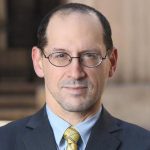Mushrooms and Other Psychedelic Plants Decriminalized in Denver and Oakland

Tuesday, May 7 was Election Day in Denver. The voters were presented with choices for Mayor, City Council, Auditor, Clerk and Recorder, and two voter initiatives: Initiative 300 (the Right to Survive Initiative, which aimed to restore certain rights as to sheltering in public places, i.e. rights of the homeless) and Initiative 301, the Denver Psilocybin Mushroom Decriminalization Ballot Initiative (I-301).
In February 2018, I heard about a group that wanted to decriminalize psychoactive mushrooms in Denver, but didn’t know much about it. In May, the new campaign director, Kevin Mathews, contacted me. He’d listened to a podcast I did on the topic of “psychedelic law,” a term I coined in 2010.
Left to its own devices, the Denver government likely would not dedicate resources to studying a mind-bending fungus, but the psychedelic constituency has mandated that it do just that.
I joined the drug policy reform movement in 1993 specifically with the goal of legalizing psychedelics, so I was glad to hear from Matthews. From May to September, we worked on an initiative in collaboration with Colorado attorneys and policy experts that could pass the Board of Elections’ requirements. In October, the board certified the language. Matthews’ team, the Decriminalize Denver campaign, went out into the Denver winter to collect the signatures necessary (4,726) to get the initiative on the ballot, which were approved in January.
Fast forward to May 7. When I checked the vote tally late Tuesday night, it was 46% in favor of I-301 and 54% opposed. However, there were still 40,000 ballots left to count. I woke up on Wednesday morning to see jubilant messages on my phone and on social media proclaiming that the initiative had passed.
The final tally was 89,320 votes in favor and 87,341 opposed – 50.56% to 49.44%. It was a difference of 1,979 votes out of the 176,661 cast. Out of the 418,546 registered voters in Denver, 40% weighed in on magic-mushroom decriminalization.
What I-301 Does
I-301 adds a new ordinance to the Denver municipal code. It does three things:
- Makes possession, use and cultivation of personal-use amounts of psilocybin mushrooms the lowest law enforcement priority for the City and County of Denver.
- Prevents the employees of Denver from using any City funds or resources to assist in the enforcement of laws imposing criminal penalties for the personal use and personal possession of psilocybin mushrooms.
- Directs the Mayor to appoint an 11-person “Psilocybin Mushroom Policy Review Panel” with specified members (including two representatives of the original petitioners who presented the initiative to the Board of Elections, a criminal defense attorney and a harm-reduction specialist) that will “assess and report on the effects” of the new law at the first City Council meeting in 2021.
What I-301 Means
The experience of passing I-301 taught us several important lessons:
- There’s a “psychedelic constituency,” a bloc of voters for whom psychedelic policy liberalization is a positive thing, if not a priority. The size of that constituency is unknown. In Denver, the constituency turned out in numbers sufficient to match opponents of reform more than one-to-one, despite a four-month campaign conducted on a minuscule budget.
- I-301 was an exercise of power by a constituency that has never been seen before in electoral politics. The election results show the leaders of Decriminalize Denver speak for no less than 20% of local registered voters.
- A functioning campaign to pass a psychedelic decriminalization initiative is, in and of itself, a major evolution in the political reality of psychedelics and the people who use them.
- Anything tending to show the existence of voter support for psychedelic law reform would have been a win. If the vote tally had stayed where it was on May 7, a 54%-46% defeat would have been a good outcome. A 52%-48% defeat would’ve been very good, and 51%-49% loss would’ve been a major declaration that policymakers need to take seriously the issue of psychedelics regulation. However, none of those explanations are necessary since the psychedelic constituency scored a well-publicized first victory and demonstrated that it can succeed at the local and state levels.
A Brief History Lesson
This year is the 75th anniversary of the release of the LaGuardia Committee Report on Marijuana, a study of the scope and societal impact of cannabis use in New York City in the early 1940s that was commissioned by Mayor Fiorello LaGuardia. The Mayor, whose personal perceptions of cannabis based on his time stationed in the Panama Canal Zone didn’t match the prohibitionist rhetoric coming from the federal government, tasked his administration and the New York Academy of Medicine with conducting research on the use of cannabis in the City and its physiological effects.
After five years, the Committee concluded, among other things, cannabis doesn’t lead to using other drugs and reports of its destructive effects on New York City were overstated.
The report was a radical document, an evidence-based policy analysis conducted by a local government that challenged the federal government’s aggressive prohibitionist orthodoxy built on outright lies.
It was one of the few rational, evidence-based studies of cannabis available to the tiny, disempowered population of legalization advocates during the long, bleak winter of prohibitionist hegemony, and one that existed only because a local government decided to conduct an independent analysis of a psychoactive substance and its effects.
New Doors of Perception
Nearly eight decades after the LaGuardia Report , the passage of I-301 creates an opportunity for an unprecedented, full and open investigation of the reality of psilocybin mushrooms, as well as a model for analysis of other psychedelic substances (depending on how much of the truth the Denver city government is ready to handle).
Relative to other drugs, psychedelic substances are a forgotten backwater of social policy without the urgency of opioids, alcohol, tobacco or cannabis, an area of interest to only a small group of specialists. Left to its own devices, the Denver government likely would not dedicate resources to studying a mind-bending fungus, but the psychedelic constituency has mandated that it do just that.
The process of documenting the history of psychedelic mushrooms, developing profiles of the populations of people who use them, understanding how they’re cultivated, distributed and consumed, and gathering data relevant to assessing the public health risks and benefits from psilocybin use will be instructive for all future efforts to formulate psychedelic policy.
Oakland Joins Denver With Sweeping Resolution
One month after the Denver vote, on June 4, the City Council in Oakland, CA agreed unanimously to decriminalize «the adult use of entheogenic plants» listed as Schedule I drugs in the federal Controlled Substances Act, including:
• «psilocybin, naturally occurring in entheogenic mushrooms»
• «cacti that contain phenethylamine compounds such as mescaline»
• «plants or combinations of plants such as ayahuasca that contain forms of DMT»
• «plants containing ibogaine»
The plants are described as having medical applications for «substance abuse, addiction, recidivism, trauma, post-traumatic stress symptoms, chronic depression, severe anxiety, end-of-life anxiety, grief, diabetes, cluster headaches and other conditions.»
Read the Decriminalize Nature Oakland resolution here.
RELATED
Former Colorado Gov. Hickenlooper Vies for Presidential Nomination
Social Cannabis Consumption Taking Off in Colorado and California
Chart: The History of U.S. State Marijuana Ballot Initiatives
If you enjoyed this Freedom Leaf article, subscribe to the magazine here

